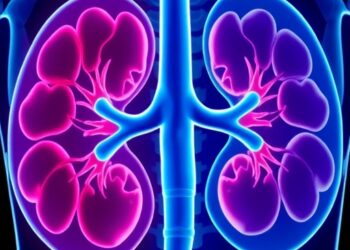Investigators from Brigham and Women’s Hospital identified and assessed underlying mechanisms that may explain the Mediterranean diet’s 23 percent reduction in all-cause mortality risk for American women
Investigators from Brigham and Women’s Hospital identified and assessed underlying mechanisms that may explain the Mediterranean diet’s 23 percent reduction in all-cause mortality risk for American women
The health benefits of the Mediterranean diet have been reported in multiple studies, but there is limited long-term data of its effects in U.S. women and little understanding about why the diet may reduce risk of death. In a new study that followed more than 25,000 initially healthy U.S. women for up to 25 years, researchers from Brigham and Women’s Hospital, a founding member of the Mass General Brigham healthcare system, found that participants who had greater Mediterranean diet intake had up to 23% lower risk of all-cause mortality, with benefits for both cancer mortality and cardiovascular mortality. The researchers found evidence of biological changes that may help explain why: they detected changes in biomarkers of metabolism, inflammation, insulin resistance and more. Results are published in JAMA.
“For women who want to live longer, our study says watch your diet! The good news is that following a Mediterranean dietary pattern could result in about one quarter reduction in risk of death over more than 25 years with benefit for both cancer and cardiovascular mortality, the top causes of death in women (and men) in the US and globally,” said senior author Samia Mora, MD, a cardiologist and the director of the Center for Lipid Metabolomics at the Brigham.
The Mediterranean diet is a plant-based diverse diet that is rich in plants (nuts, seeds, fruits, vegetables, whole grains, legumes). The main fat is olive oil (usually extra virgin), and the diet additionally includes moderate intake of fish, poultry, dairy, eggs, and alcohol, and rare consumption of meats, sweets, and processed foods.
The current study investigated the long-term benefit of adherence to a Mediterranean diet in a U.S. population recruited as part of the Women’s Health Study, and explored the biological mechanisms that may explain the diet’s health benefits. The study investigators evaluated a panel of approximately 40 biomarkers representing various biological pathways and clinical risk factors.
Biomarkers of metabolism and inflammation made the largest contribution, followed by triglyceride-rich lipoproteins, adiposity, insulin resistance. Other biological pathways relate to branched-chain amino acids, high-density lipoproteins, low-density lipoproteins, glycemic measures, and hypertension have smaller contribution.
“Our research provides significant public health insight: even modest changes in established risk factors for metabolic diseases—particularly those linked to small molecule metabolites, inflammation, triglyceride-rich lipoproteins, obesity, and insulin resistance—can yield substantial long-term benefits from following a Mediterranean diet. This finding underscores the potential of encouraging healthier dietary habits to reduce the overall risk of mortality,” said lead author Shafqat Ahmad, PhD, an associate professor of Epidemiology at Uppsala University Sweden and a researcher in the Center for Lipid Metabolomics and the Division of Preventive Medicine at the Brigham.
The current study identifies important biological pathways that may help explain all-cause mortality risk. However, the authors note some key limitations, including that the study was limited to middle aged and older well-educated female health professionals who were predominantly non-Hispanic and white. The study relied on food-frequency questionnaires and other self-reported measures, such as height, weight and blood pressure. But the study’s strengths include its large scale and long follow up period.
The authors also note that as the concept of the Mediterranean diet has gained popularity, the diet has been adapted in different countries and cultures.
“The health benefits of the Mediterranean diet are recognized by medical professionals, and our study offers insights into why the diet may be so beneficial. Public health policies should promote the healthful dietary attributes of the Mediterranean diet and should discourage unhealthy adaptations,” said Mora.
Authorship: In addition to Ahmad and Mora, Brigham authors include M. Vinayaga Moorthy, I-Min Lee, Paul M. Ridker, JoAnn E. Manson, Julie E. Buring, and Olga V. Demler.
Disclosures: Mora reported being coinventor on a patent for examining glycoprotein acetylation in relation to colorectal cancer risk licensed to LabCorp and on a patent application for amethod for prediction of future cardiovascular disease risk via analysis of IgG glycome, assigned to GENOS d.o.o. and the Brigham and Women’s Hospital, Inc. Additional disclosures can be found in the paper.
Funding: The Women’s Health Study is supported by the NIH (grant Nos. CA047988, HL043851, HL080467, HL099355, and UM1 CA182913). Dr Ahmad was supported through a career-starting research grants from Swedish Research Council (2022-01460) and FORMAS (2020-00989) and also research grant from the EpiHealth, Sweden. Dr Demler was supported by a K award from the NHLBI of the NIH under award No. K01HL135342-02. Dr Mora was supported by the research grants from the National Institute of Diabetes and Digestive and Kidney Diseases (grant No. DK112940); NHLBI (grant Nos. R01HL160799, R01HL134811, R01HL117861 and K24 HL136852); American Heart Association (grant No. 0670007N); and the Molino Family Trust. In addition, LabCorp provided the LipoProfile IV results to the study at no additional cost.
Paper cited: Ahmad S et al. “Mediterranean Diet Adherence and Risk of All-Cause Mortality in Women” JAMA DOI: 10.1001/jamanetworkopen.2024.14322
Journal
JAMA
Method of Research
Observational study
Subject of Research
People
Article Title
Mediterranean Diet Adherence and Risk of All-Cause Mortality in Women
Article Publication Date
31-May-2024
COI Statement
Mora reported being coinventor on a patent for examining glycoprotein acetylation in relation to colorectal cancer risk licensed to LabCorp and on a patent application for amethod for prediction of future cardiovascular disease risk via analysis of IgG glycome, assigned to GENOS d.o.o. and the Brigham and Women’s Hospital, Inc. Additional disclosures can be found in the paper.




